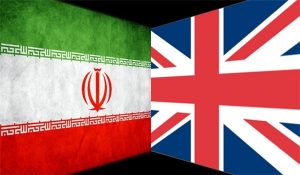The British Conservative Government’s Political Elite, and the European Union: Safeguarding British Interests (With Special Reference to: 2010 – 2016)
The sector of small and medium sized firms is based, in part, on the conditions of competitive capitalism. But the basic constraints upon the business decisions of the firms are the activities of the large enterprises which supply raw materials, buy finished goods or offer credit. It is the structure and operations of the oligopoly sector which generate the wealth and hence privileges, including power holding or access to it, enjoyed by the dominant status group.
In respect of land ownership, the effect on the nature of the ‘establishment’ of the agricultural depression of the nineteenth century, which lasted well into this century, is important. “The long drawn out nature of the agricultural depression forced the break-up of the large estates, a process which was hastened by a number of fiscal changes introduced by LLOYD GEORGE.”19 It is estimated that between six and eight million acres of land changed bands between 1918 and 1926, much of this land passing to smaller owner-occupier farmers. Following the pressures from manufacturers, and the successful compromise with them which we discussed earlier, the traditional landowners this time dealt with the situation in which they would otherwise be left with diminished estate by a skillful management of the sale of their land which ensured that their total wealth would hardly be affected. Wealth released from the land in this way was reinvested in trade, industry or overseas property. These landowners became active in the twentieth century “in large industrial enterprises which increasingly dominate the productive use of this land even where they do not actually own the land. Marketing and food-producing firms, together with fertilizer and seed suppliers, exercise a pervasive influence over the many owner occupier and tenant farmers. Farming, like many small and medium sized businesses, is becoming more and more dependent upon big business. In this way land and agriculture are integrated fully with the rest of the monopoly sector.”20
Until the 1930’s it was still possible in many cases, to find successors to executive positions in companies from within the large families who owned them. After 1940 there was a smaller base of recruitment because of the general decrease in family size and the massive losses of men in two wars. Increasingly, members of the founding families were forced to appoint executives from outside the family circle.
Family holdings in the family company have gradually become more and more diluted and family members have diversified their investment portfolio, so their particular interest in their company becomes less all pervasive in relation to their other interests.
Pages: 1 2 3 4 5 6 7 8 9 10 11 12 13 14 15 16 17 18 19 20 21 22



